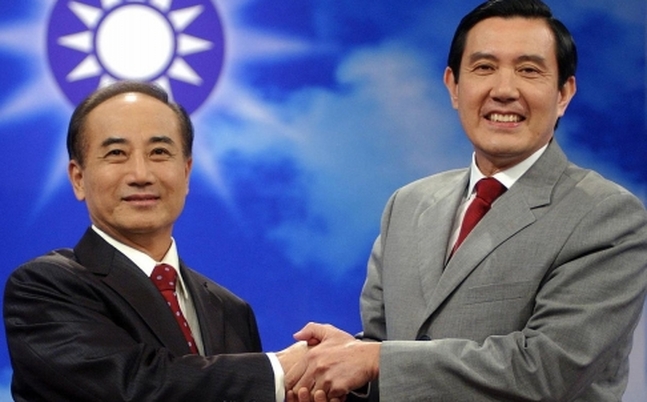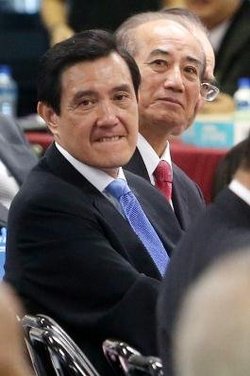The sudden attempt to purge Speaker Wang suggested that executive-legislative policy-making was more complicated, and more interesting, than I had supposed. And the slow, foot-dragging review of the Cross-Strait Services in Trade Agreement (CSSTA) (兩岸服務貿易協議) --"Fu-Mao" for short--in the legislature put the lie to the idea that President Ma could ultimately wield control over the KMT to get executive priorities passed. It eventually became clear that these two events were probably linked: that Ma's strike against Wang was motivated at least in part by his frustration with the slow pace of action on the CSSTA in the legislature.
All this happened well before a procedural dispute sparked the student protest and occupation of the legislature that became known as the Sunflower Movement. Thus, while the student protests were unexpected and dramatic, and attracted a huge amount of foreign and domestic media attention, their main political achievement so far is to have reinforced the pre-existing stalemate between the legislature and the executive. The focus on the light and heat generated by the Sunflower Movement has, I think, obscured this fact: the legislature as an institution is a formidable and powerful opponent of the executive.
| The narrative of the Ma administration is that the legislature is dysfunctional, and that the opposition Democratic Progressive Party (DPP) is entirely to blame for the ruling party's troubles. At the KMT's party congress this past week, for instance, President Ma criticized the DPP for its "endless" obstructionism and "abuse" of minority power. If the main opposition party in the legislature really does have the ability to block everything it doesn't like, then that is indeed worrisome for Taiwan's democracy. But it's not as simple as that. The DPP, for all its success in harassing cabinet officials and stalling government initiatives, is not able to exercise an effective veto over legislation as long as the KMT itself is unified. Thus, I think the fundamental political problem for Ma lies not with the opposition but within the KMT itself. |
- The Legislative Yuan matters more than ever for policy-making.
- The KMT legislative caucus is the primary obstacle to presidential priorities--not the DPP, the Cross-Party Negotiation Committee, or Wang Jin-pyng.
- President Ma thought removing Wang Jin-pyng would solve his problems with the legislature. It won't.
- The Ma administration doesn't understand the politics of the legislature very well.
Separate posts will follow.


 RSS Feed
RSS Feed
